Sim-racing is gaining ground in the gaming world, to the point of having a whole section in a Micro Center store in the USA. Typically, you have to head for a specialized store, and online in most cases, to find your racing simulation happiness. This approach has its advantages, such as home delivery and promotions, but also its disadvantages, notably the inability to see and hold the products in your hands.
In any case, sim-racing is a promising market, with several players. We have brands that mainly target specific segments, such as Logitech and Thrustmaster for entry-level and budget-friendly solutions, even if the Swiss brand has demonstrated its willingness to move upmarket. There are also brands that operate in the mid-range and high-end segments, such as Fanatec and Moza Racing. And, of course, we have a number of premium players, including Simucube and Heusinkveld.
Choosing a sim-racing setup can therefore quickly become difficult, especially for beginners who know nothing about equipment. And I’m not even talking about brands that operate in similar segments, such as Fanatec and Moza. In fact, that’s what we’re going to look at today in this article, and above all, which brand to choose between these 2 mid-range and top-of-the-range rivals.
Fanatec vs Moza: a story that goes back a few years
For the uninitiated, Fanatec vs. Moza can be seen as the Ford vs. Ferrari at the 24 Hours of Man in the 60s: on the one hand, we have Fanatec, which has been in the industry for over 20 years, with a product range that is both varied, competitive and, above all, world-renowned (Ferrari in competition, basically). On the other hand, we have Moza Racing, which has only just set foot in sim-racing (September 2021), but has nonetheless managed to offer an excellent alternative to the industry tenors.
In sim-racing, Moza clearly has an objective in mind, with a clear target: to wrest market share from other brands, and also to target Fanatec where the German giant is not present. In the space of just 3 years, Moza has succeeded in establishing a good reputation in sim-racing thanks to its products, which offer a very good price/performance ratio.
Which brand to choose between Fanatec and Moza?
Well, it’s not as simple as that, and for various reasons. I’ll try to cover as much as possible in what follows, to give you an idea and also better guide you in your selection.
Brand image
We start with the brand image: here, it’s clearly Fanatec that takes the lead, with its innovations and products that have been much appreciated by the general public for over 20 years. When you think of sim-racing, Fanatec is one of the names that springs directly to mind, especially if you have any knowledge of the subject.
But Moza is doing pretty well, especially when you factor in that the brand has only been present in sim-racing since September 2021. Few companies have managed this feat, especially with products that are frankly competitive for their price.
Range diversification
In terms of Direct Drive bases, Moza takes the lead over Fanatec with a total of 7 devices in 3 different segments: entry-level, mid-range and high-end.

What’s more, Moza’s DD bases have a good reputation in the game, especially the “V2s”, which have been greatly improved over the first shots. And what’s shocking is that the Chinese brand has done this in such a short space of time. Usually, it takes a few years for a manufacturer to correct its products, the time it takes to make sales and collect money to finance upgrades.
But when it comes to other sim-racing products, Fanatec remains the king in terms of peripherals. Fanatec’s steering wheel catalog includes over forty entries, spread over 3 distinct ranges (CSL, ClubSport and Podium) and with official licenses such as Sparco, BMW, McLaren, Porsche and the list goes on.

Peripheral availability
Fanatec is many years ahead of Moza, especially when it comes to its distribution network. The German brand is present in several markets, including Europe, North America, Asia and Australia. As a result, Fanatec products are available worldwide, directly from the brand’s website, and with delivery times that are often very short.
For Moza, the Chinese company is just beginning to develop its distribution network via authorized partners. The project is progressing well, but it will take time to reach the same level as Fanatec.
Product manufacturing quality
On this point, both brands are equal as far as I’m concerned, whether for bases, pedalboards, steering wheels or other sim-racing peripherals. For Fanatec or Moza, both use good quality materials for their different product ranges, with the emphasis on build and assembly quality. In my experience, you won’t find a flaw in a Moza or Fanatec product, even if it’s an entry-level model.
The sensations produced in play
On this point, experience plays a crucial role, and Fanatec has over 20 years of it in the industry. The German brand’s Direct Drive bases may be fewer in number than Moza’s, but they’re still perfect when it comes to transcribing effects. The balance between motor, electronics and software ensures excellent in-game sensations, whatever the sim-racing title in front of you.
However, Moza does quite well, especially on its R16 and R21 bases, where the feel is among the best available on the market. In fact, as far as I’m concerned, these two Moza bases are the ones I’d most recommend to anyone shopping between 15 and 22 nm of torque, for the simple reason that the R16 and R21 have a superb performance/price ratio.
The ecosystem
It’s true that Moza offers a complete range of sim-racing peripherals, including bases, steering wheels, pedals, shifters, handbrakes and even dashboards. It’s complete, but the number of inputs can be counted on the fingers of one hand. Compared to Fanatec, Moza pales in terms of sim-racing peripheral diversity, especially when it comes to steering wheels.

Nevertheless, the Chinese brand has shown its determination to diversify its range, notably with its new truck steering wheel. I’m sure that in a few years’ time, we’ll have a much better choice of sim-racing peripherals from Moza. However, there remains the point of compatibility between Moza products, which is not often present. You’ll have, for example, some steering wheels compatible only with certain bases, which are typically the old ones, or V1s if you prefer.
On the other hand, at Fanatec, it’s literally a fair for accessories and other peripherals. Pallet modules, button hubs, Quick Release, pedalboard kits, button and sticker kits, you name it. The Fanatec ecosystem is not only vast and complete, but also highly compatible. Virtually all Fanatec products work perfectly with each other, whatever the range.
Platform compatibility
Here, Fanatec dominates Moza, and there’s nothing to say about that. For the German brand’s basics, you’ll almost always get console and PC compatibility, whether it’s Xbox and PC or Playstation and PC. And in some cases, compatibility with all platforms. And when it comes to steering wheels, you’ll always have PC, with console-specific versions as well.
At Moza, only the R3 bundle is Xbox-compatible, and the rest of the range is PC-only.
Sales price
The last point to consider when choosing a brand is price. Here, the two brands are pretty evenly matched, and the reason is quite simple: Moza wants to compete with Fanatec on its own turf, and therefore needs to offer prices that are not only competitive, but also very close to those offered by the German brand.
Sometimes you’ll find a Fanatec bundle a hair more expensive than Moza’s, and in other cases it’s the other way around. Sometimes you’ll be better off with an R5 bundle from Moza, as the steering wheel may be of better quality than those offered by Fanatec, especially the cheapest in the range, even if Moza’s selling price is higher.


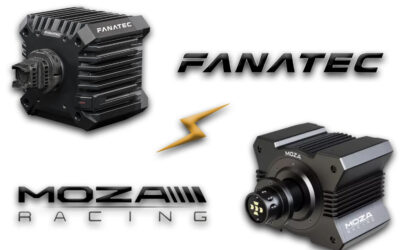
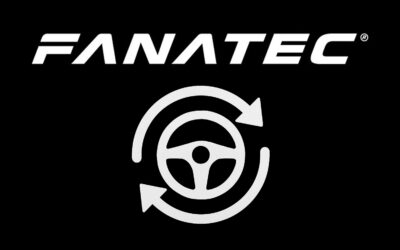

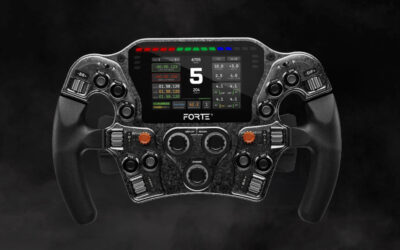
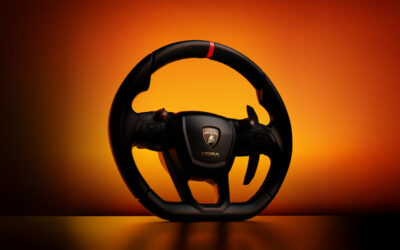
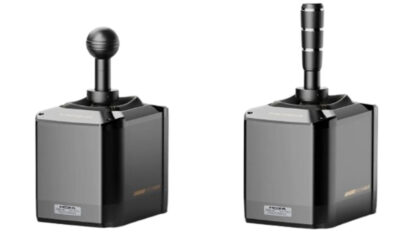
0 Comments